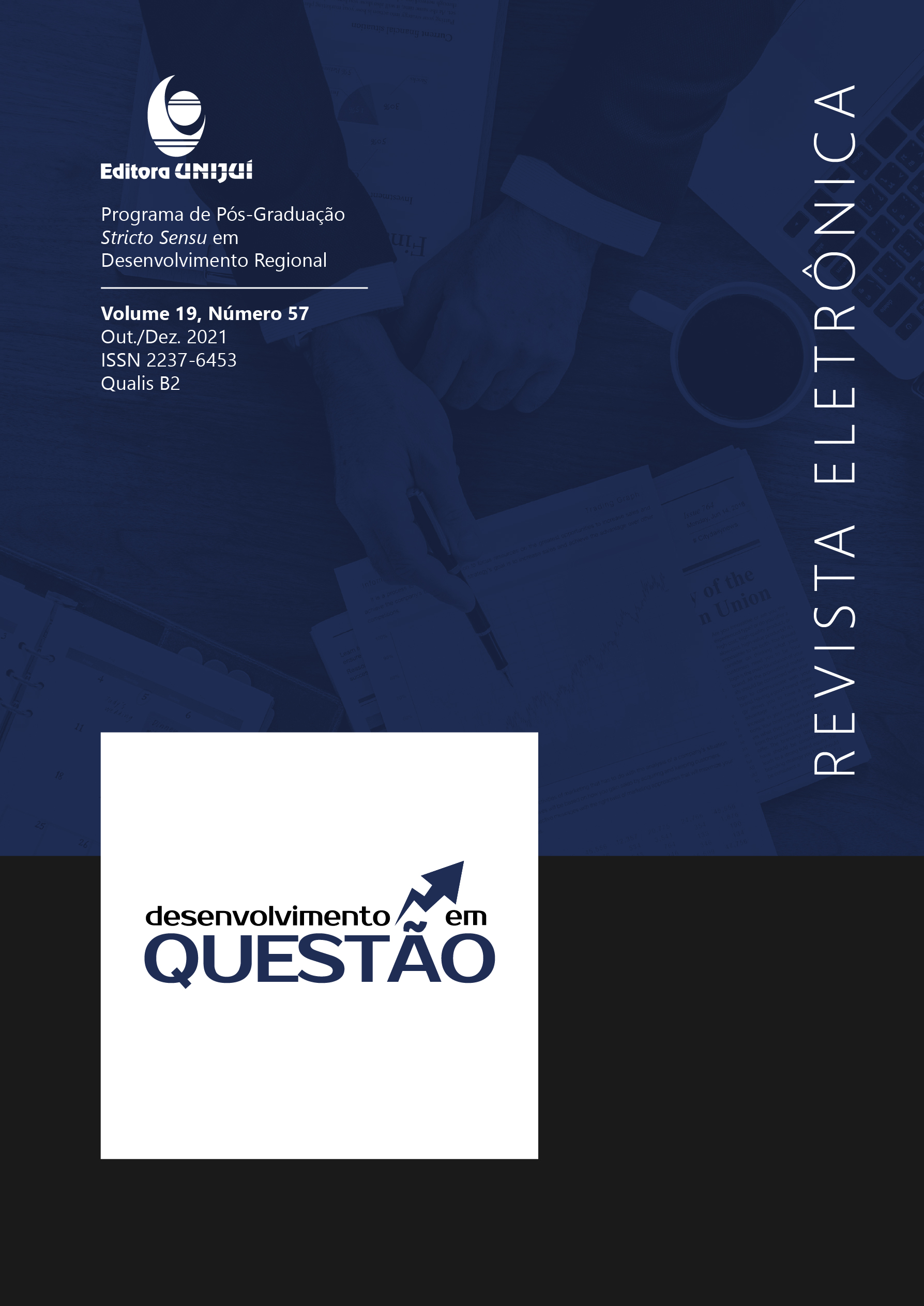Tendências Globais e Motivações da Apropriação de Terras ou “Land Grabbing” no Brasil
GLOBAL TRENDS AND MOTIVATIONS OF LAND APPROVAL OR “LAND GRABBING” IN BRAZIL
DOI:
https://doi.org/10.21527/2237-6453.2021.57.9806Palavras-chave:
Estrutura Fundiária. Mercado de Terras. Investimento.Resumo
A corrida mundial por terras tem-se acentuado ao longo dos anos, sobretudo, a partir da crise agroalimentar de 2007/2008. Neste trabalho tem-se por objetivo identificar os principais motivos da compra e/ou apropriação de terras no Brasil, por estrangeiros, destacando as principais influências mundiais que propiciam essa maior demanda por terras. A metodologia utilizada consiste em uma pesquisa exploratória, realizada a partir de uma pesquisa bibliográfica, com o intuito de identificar as principais abordagens que estão sendo desenvolvidas no meio acadêmico sobre o tema. Entre os principais resultados identificou-se que o aumento populacional e de renda, impulsionados pela urbanização crescente, principalmente em países em desenvolvimento tem aquecido a demanda por alimentos, e consequentemente de terras. Nesse sentido, o Brasil torna-se um país alvo de investimentos estrangeiros pela disponibilidade de recursos naturais e a ascensão do agronegócio brasileiro na produção de alimentos. Além disso, é possível concluir que além da garantia da segurança alimentar de seus países, a corrida mundial por terras também possui outras motivações, como os biocombustíveis, florestas, fontes de energias, fundos de investimentos pela valorização da terra, dentre outros. Esse conjunto de interesses possuem características próprias, algumas fortemente políticas, perceptíveis na forma como a estrutura fundiária brasileira foi moldada e vem se moldando.
Downloads
Publicado
Como Citar
Edição
Seção
Licença
Ao publicar na Revista Desenvolvimento em Questão, os autores concordam com os seguintes termos:
Os trabalhos seguem a licença Creative Commons Atribuição 4.0 Internacional (CC BY 4.0), que permite:
Compartilhar — copiar e redistribuir o material em qualquer meio ou formato;
Adaptar — remixar, transformar e criar a partir do material para qualquer fim, inclusive comercial.
Essas permissões são irrevogáveis, desde que respeitados os seguintes termos:
Atribuição — Atribuição — os autores devem ser devidamente creditados, com link para a licença e indicação de eventuais alterações realizadas.
Sem restrições adicionais — não podem ser aplicadas condições legais ou tecnológicas que restrinjam o uso permitido pela licença.
Avisos:
A licença não se aplica a elementos em domínio público ou cobertos por exceções legais.
A licença não garante todos os direitos necessários para usos específicos (ex.: direitos de imagem, privacidade ou morais).
A revista não se responsabiliza pelas opiniões expressas nos artigos, que são de exclusiva responsabilidade dos autores. O Editor, com o apoio do Comitê Editorial, reserva-se o direito de sugerir ou solicitar modificações quando necessário.
Somente serão aceitos artigos científicos originais, com resultados de pesquisas de interesse que não tenham sido publicados nem submetidos simultaneamente a outro periódico com o mesmo objetivo.
A menção a marcas comerciais ou produtos específicos destina-se apenas à identificação, sem qualquer vínculo promocional por parte dos autores ou da revista.
Contrato de Licença (para artigos publicados a partir de 2025): Os autores mantêm os direitos autorais sobre seu artigo, e concedem a Revista Desenvolvimento em Questão o direito de primeira publicação.











